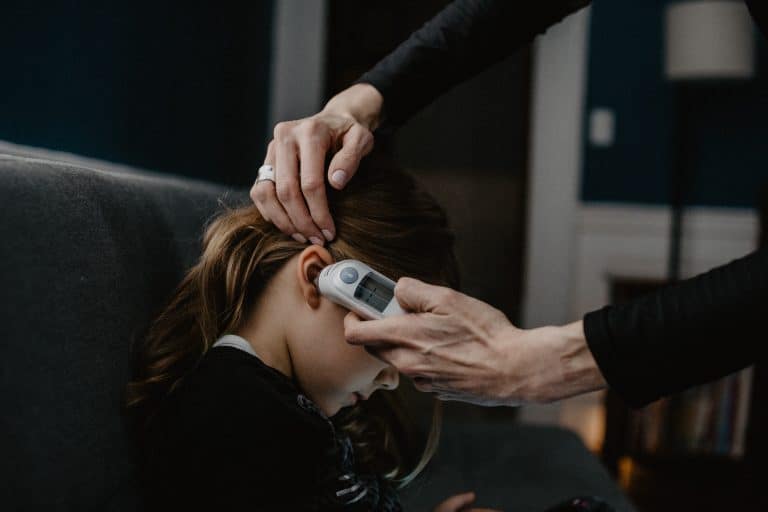Don’t worry! At least not right away. Fever is your body’s natural response to infection. It is a sign that something is happening, but in and of itself fever is not dangerous.
Fever is defined as a temperature >100.4. An average older child or adult temperature is 98.6. Infants under 3 months tend to have a naturally higher temperature of 99.1 or so. Also, core temperature tends to rise slightly through the day, with late afternoon temperatures averaging 1/2 a degree higher than upon awakening.
Can teething cause fever? Not directly. Although it may cause a slight increase in body temperature, it would not be wise to assume any temp over 100.4 is due to teething alone.
When to consider fever as a sign that something more serious is going on:
• fever >72 hours
• fever that has come back several days into an illness (after the child seemed to be improving)
• temperature > 105
• fever that is associated with increasing symptoms such as more productive cough or persistent vomiting
• fever in an infant less than 3 months old
Should i give fever reducing medicines? In short, YES. Tylenol (any age but always call if 0-3 months) and Ibuprofen (6 months and older) are relatively safe and effective when used as directed. If the child’s fever is down he/she is more likely to drink and stay hydrated. These meds are not interfering with the child’s ability to fight off the illness.
Also, both of these meds can be given simultaneously as long as it is time for each one (no more than every 4 hours for Tylenol, no more than every 6 hours for Ibuprofen).
Never use aspirin as a fever reducer in anyone under 18 years old unless directed by a physician.
Remember, fever is a useful indicator of what is going on in the body. And if you’re not sure give us a shout and we will decide the best course of action!


